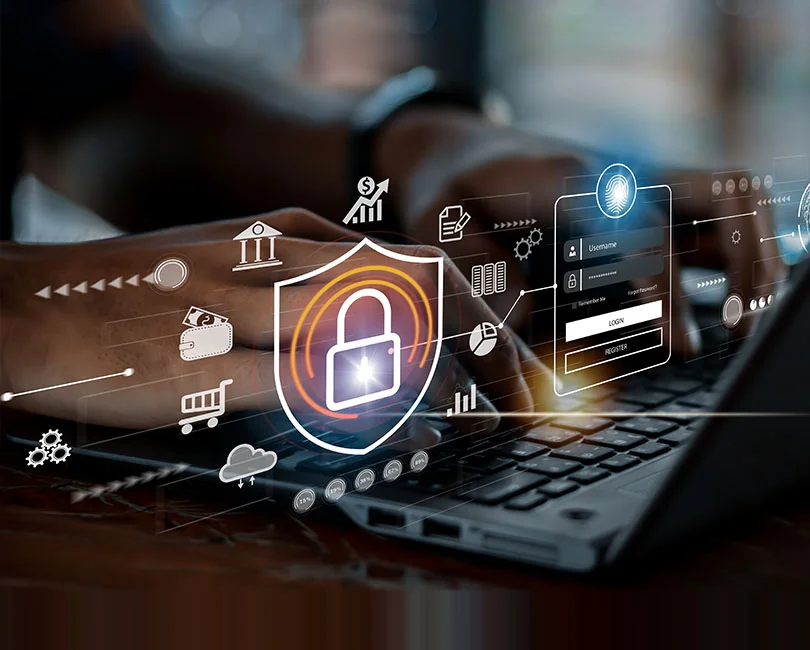For all the benefits that the web delivers, there exist dangers in its shadows. From phishing attacks to digital identity theft, ransomware and DDoS, pitfalls abound. Thankfully, there are cybersecurity tips you can follow to avoid becoming a victim of these things.
Read more about Tech
This article is a summary of some of the basic steps you can take to protect yourself and your business from the risks that lurk in cyberspace. If you’re a frequent user of the internet, you’ll find them useful.
Be Careful About Sharing Personal Information Online
Take care to not overshare details about yourself online. You should think twice about putting sensitive personal information out in the open. Would-be identity thieves are always prowling, in search of material that they could steal—whether it’s pictures, personal data, or other digital items belonging to unsuspecting individuals. Don’t give them a chance with yours.
Update Your Antivirus Software
Make sure to update your antivirus software as soon as there’s a new version available. When you do this, you’ll arm yourself with the latest protections against the most recent threats. If you don’t update, you put yourself and your business at risk of falling victim to cyberattacks that older software isn’t designed to ward off.
Use a Firewall
A firewall is a network security system that filters traffic coming into and going out of your network. If it works properly, it’ll shut out malicious traffic. So, it’s sort of a guard that keeps out unwanted elements. For optimal performance, ensure that it is updated regularly.
Update Other Software
Just as we’ve advised for your antivirus software, you should also update other apps as often as possible. The updates typically come with patches that protect against new threats. Putting this off for “later” could prove costly—you never know when your devices or systems will get tested by the dangerous side of the web.
Sign up for the Connect Nigeria daily newsletter
Turn Off Bluetooth and Wi-Fi when Not in Use
If you’re not using your devices, you’re probably not aware of what’s going on with your network—unless it’s switched off. Ill-intentioned actors may seek to gain access to your network through unprotected connections. To stay on the safe side, you’ll want to keep your Bluetooth and WiFi off when you aren’t using them. This isn’t just another of our cybersecurity tips. It could also save you battery power.
Use VPN on Public WiFi
Use a VPN when you’re connecting to public WiFi. Such connections are often unsecured and are prone to being infiltrated by malicious actors who want to intercept your data. A VPN will protect you by encrypting your connection, thus making it difficult for criminals to snoop on your activity.
Only Download Software from Trusted Sources
Files and apps downloaded from unverified platforms may come with malware that could infect your system. If you can’t ascertain that a website is safe for downloading whatever it is you need, don’t go ahead with it. You’re better off sticking to reliable sites and app stores.
Enable Multi-Factor Authentication
Instead of just using a password, try putting in place multiple steps to signing into user accounts. For example, a user at your business who wants to log into their account may have to provide a code sent to their email or answer a specific question. These extra layers of security will make it more difficult for an imposter to gain access to their account.
Don’t Open Suspicious Files or Links
Some links or documents may contain malware or lead to phishing websites. Before you open any file or link, determine that they have come from a trustworthy source. If it’s a link, try to hover over it with your cursor to see where it leads before deciding whether to click it or not.
Log Out of Accounts
When you’re using a public computer, make sure to log out of your online accounts when you’re done with it. If you leave without logging out, you might be inadvertently giving the next user access to your accounts.
Register to attend the CN Business Mixer
Final Words
The cybersecurity tips we’ve briefly discussed here could save you and your business a lot of money—including costs racked up trying to fix the aftermath of a cyberattack. Implement them today to stay several steps ahead of cybercriminals.
Featured Image Source: Stambaugh Ness
Got a suggestion? Contact us: [email protected]


